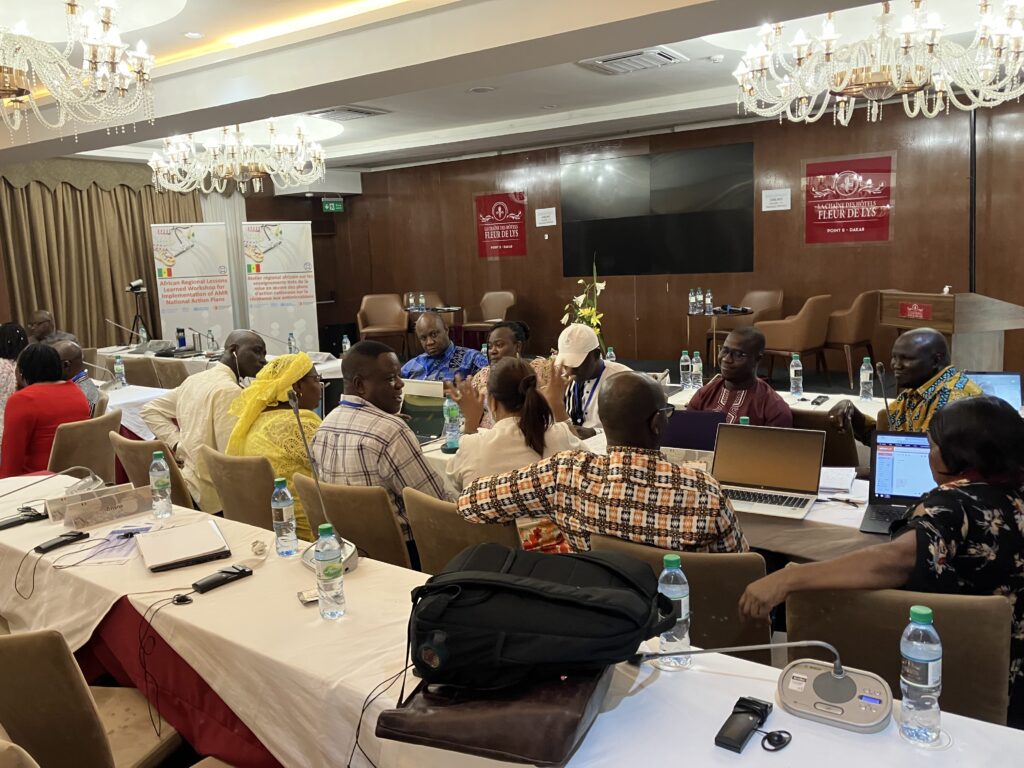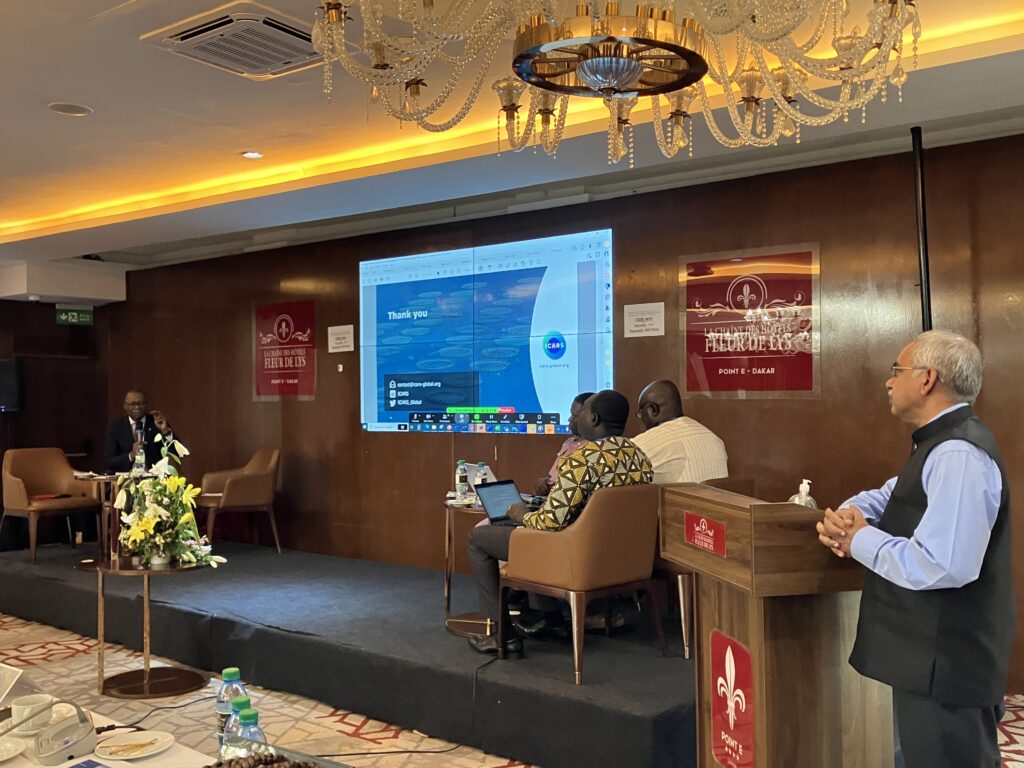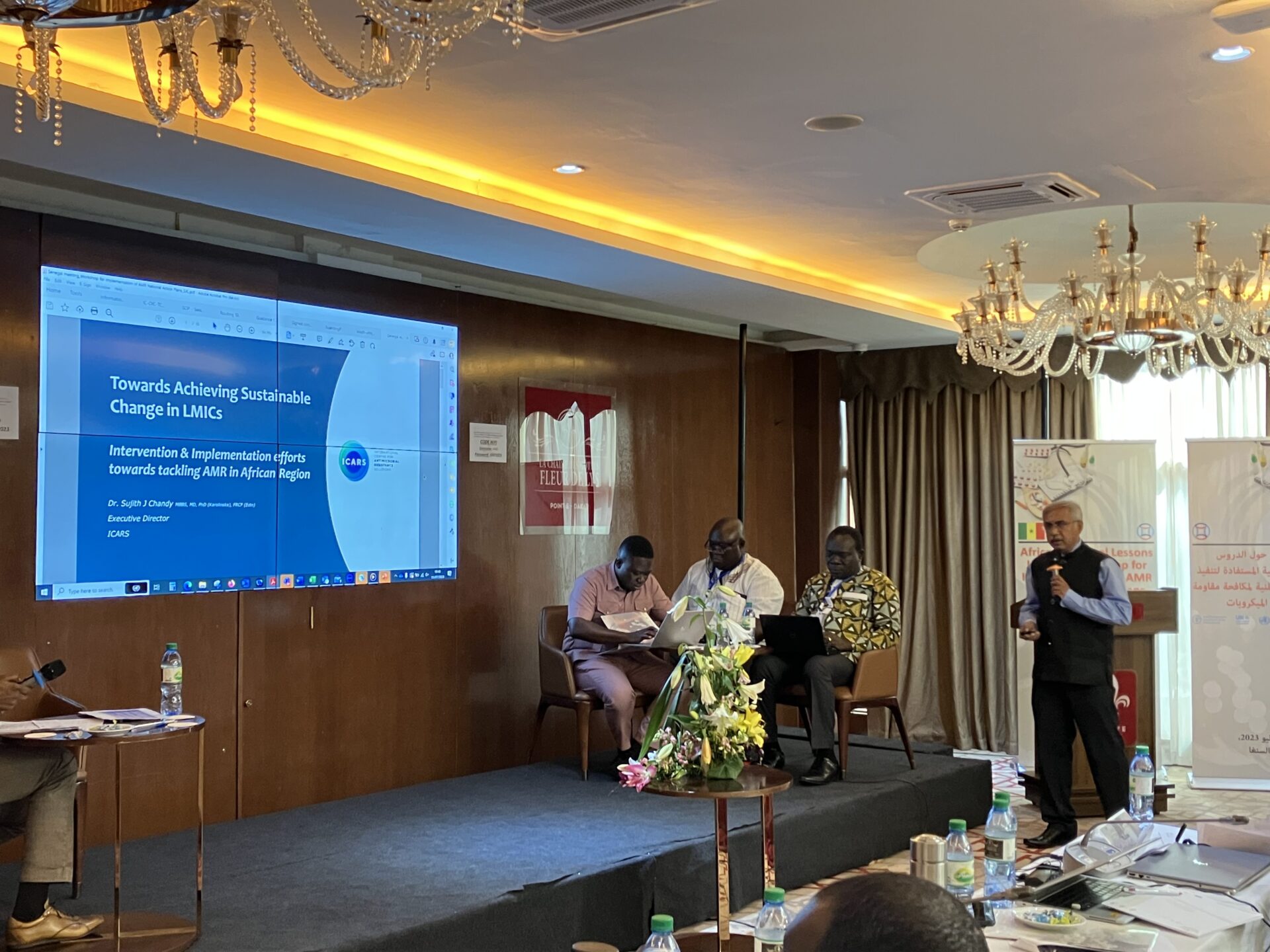On the 10th of July, 25 African countries gathered in Dakar, Senegal, to share their progress and efforts on the implementation of their National Action Plans (NAPs) to mitigate antimicrobial resistance (AMR). At the conference, arranged by the regional Quadripartite (UNEP, WOAH, FAO, and WHO), African governments and institutions shared their best practices alongside challenges in developing their NAPs. ICARS, in its capacity as an AMR partner, was invited to present the experiences and learnings from the projects it has been co-developing with Low-and-Middle-Income Countries (LMICs). ICARS’ Executive Director, Dr Sujith J Chandy, represented ICARS in Dakar and engaged in dialogue with key governmental representatives, AMR partners, and regional organisations. On his return to ICARS headquarters, Dr Sujith J Chandy shared his experience by answering a few questions.
What were your general impressions during the African Regional Workshop?
“The discussions and presentations on the progress among 25 African countries were quite impressive. Such opportunities to come together are unique but critical for shared learning and a sense of common purpose in the progress on NAPs. The direct contact and open dialogue between countries and AMR leaders is crucial to finding relevant and sustainable solutions for the mitigation of AMR.”
What notable positive outcomes did you observe during this event?
“Several encouraging developments were evident. The countries’ presentations showcased significant progress in mitigating AMR through all One Health sectors, animals, humans, the environment, and plants. Significant advancements are being made in achieving the five objectives outlined in the Global action plan on AMR, though there is a long way to go. This event also provided a platform to explore effective strategies for fostering cross-sector collaboration and establishing robust partnerships among countries, the quadripartite, and resource partners.”

What challenges were brought up during the conference?
“Almost every country mentioned insufficient finances, limited lab capacity, sub-optimal multisectoral coordination, and shortage in human resources. These factors make integrated surveillance a much more difficult task. Since countries are often dependent on short-term donations and funds, it becomes much more difficult to achieve sustainable solutions and enhance capacity building. Nonetheless, I was inspired by several success stories. For example, the farmer field schools in the poultry sector, the project among schoolchildren leading to behavioural changes of antimicrobial use, and the cattle vaccination program.”
Is there anything ICARS can do to address some of the challenges?
“Definitely! The context-specific, cost-effective approach of ICARS with interventional and implementation research aims to fill in the gaps in the NAP progress. From the time ICARS was initiated, we have been focusing on sustainable solutions that build capacity and give local partners agency to scale-up these solutions. The tools of mitigating AMR need to make sense locally, which is why ICARS develops projects based on local contexts and led by local teams. This process allows for a bi-directional stream of knowledge that creates sustainable and tailored solutions to AMR that will then be replicable.”

What are the next steps following the conference?
“After listening to the countries’ success and challenges, there is a much-needed enthusiasm to move forward with their NAPs. For ICARS, this is an opportunity to intensify and expand our dialogues with governments, organisations, and research institutions in Africa and beyond. You could sense a genuine interest in ICARS’ approach during the workshops. Therefore, it is my hope that we can help these countries co-develop models using implementation research and thereby do our part to support the NAPs. These countries can then, in turn, help others by using these models and inspire global efforts towards tackling AMR.”

